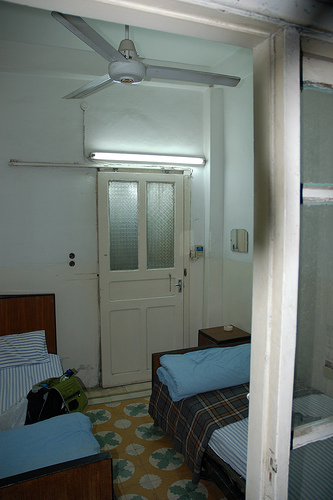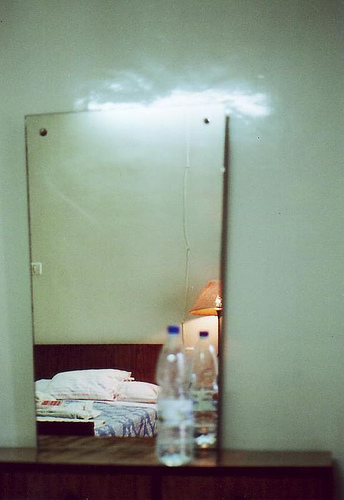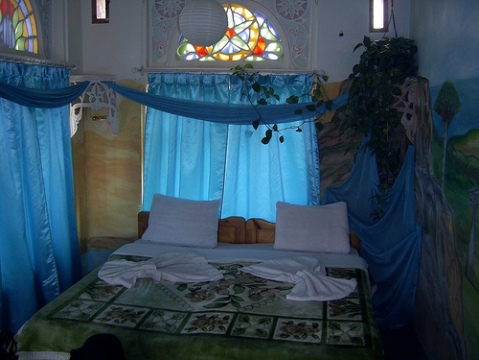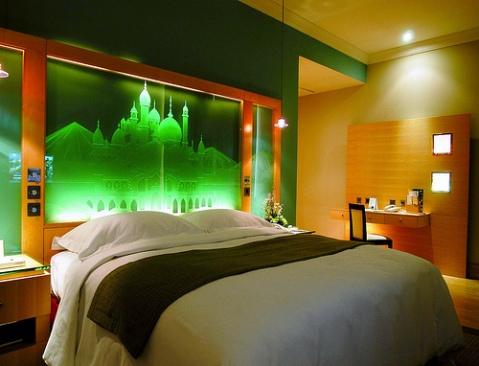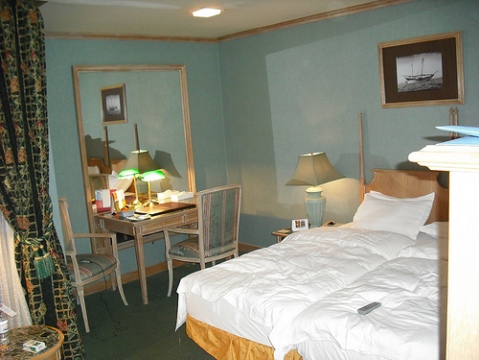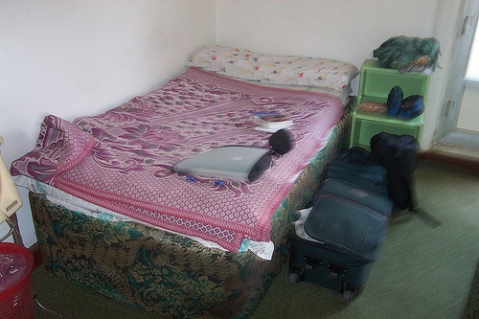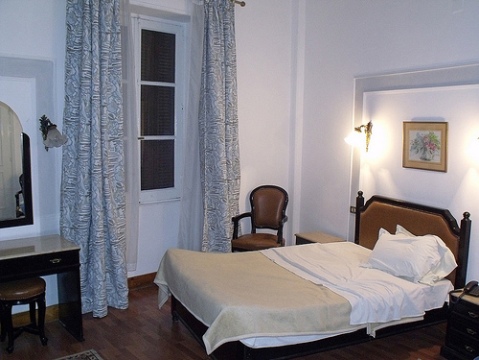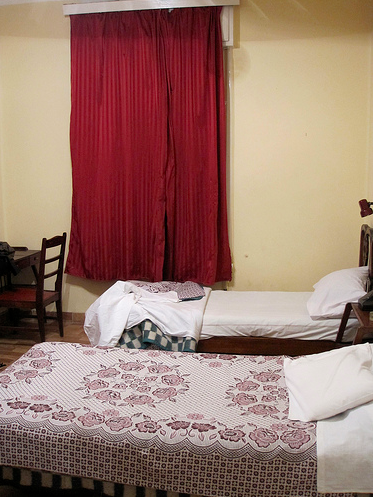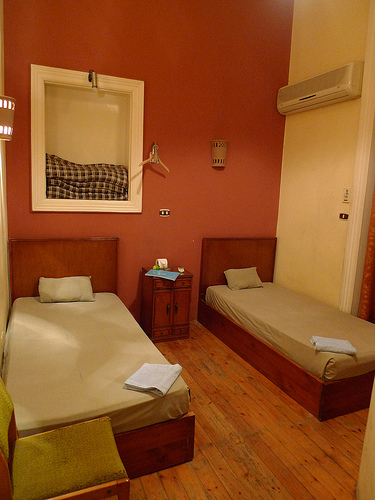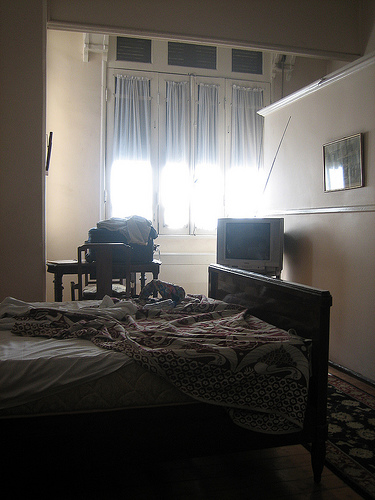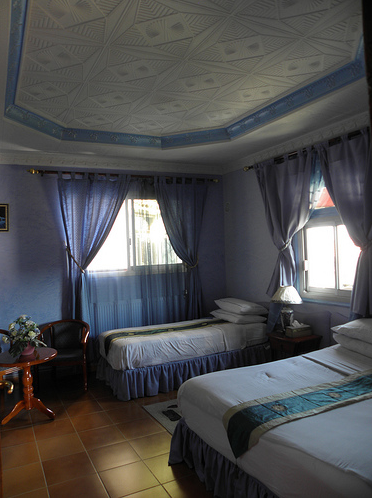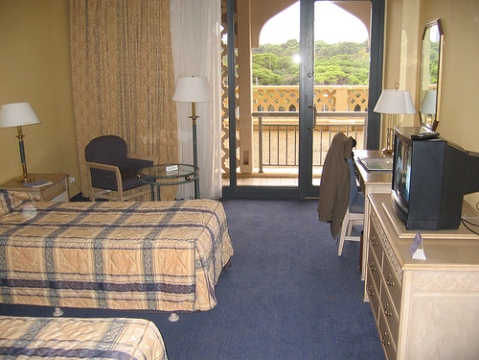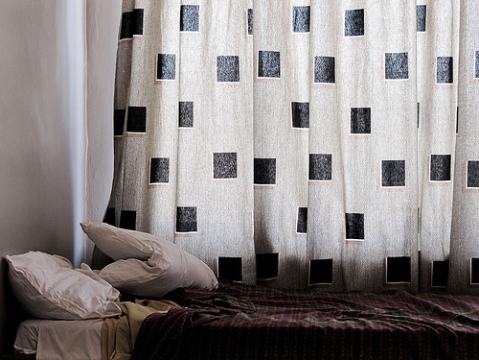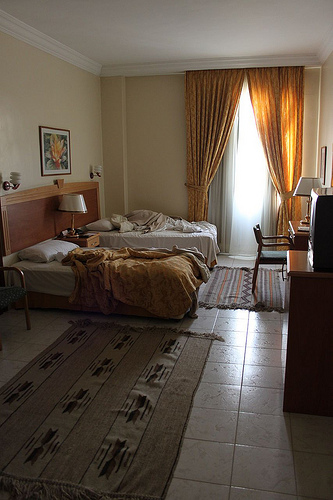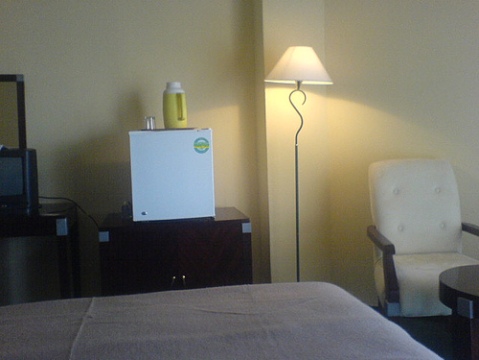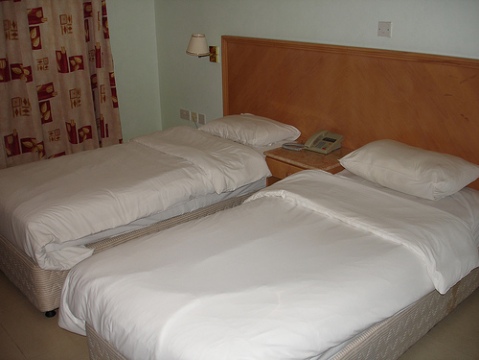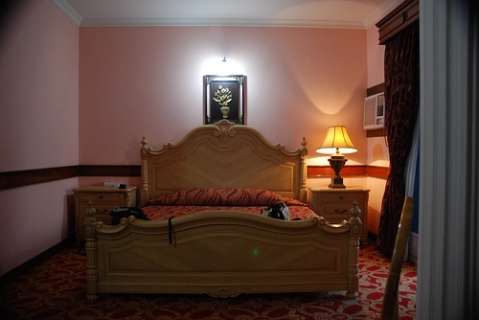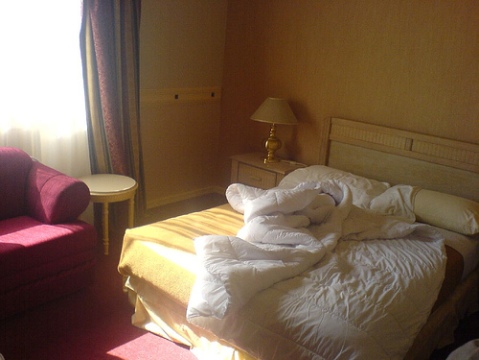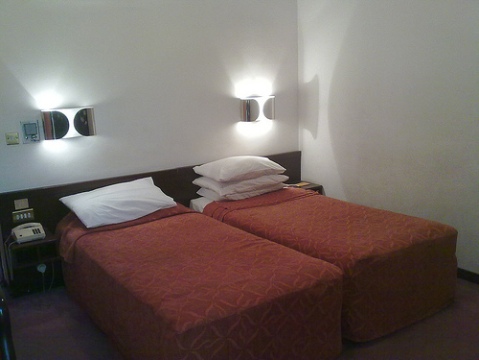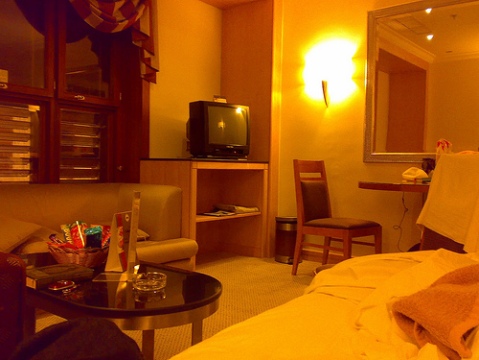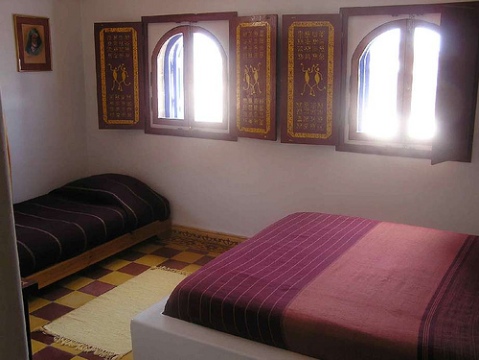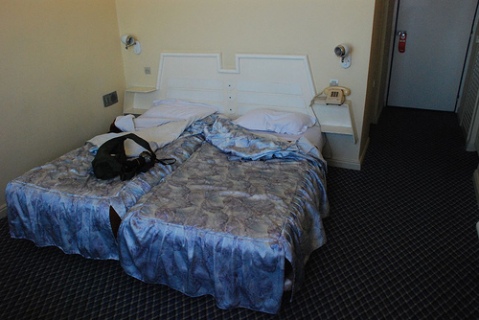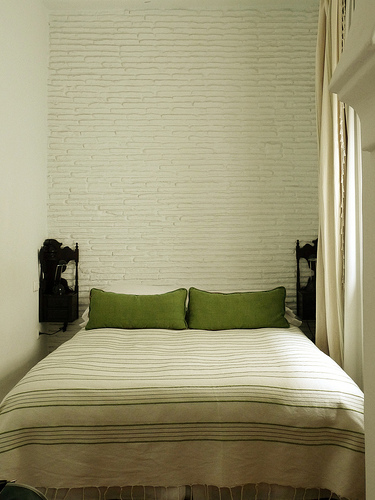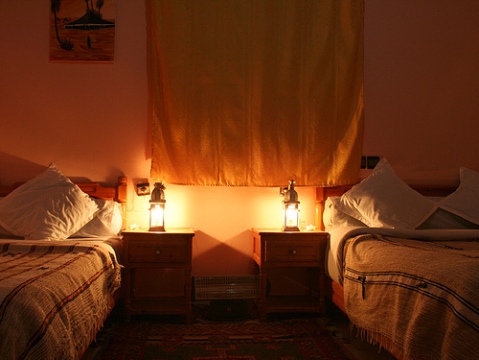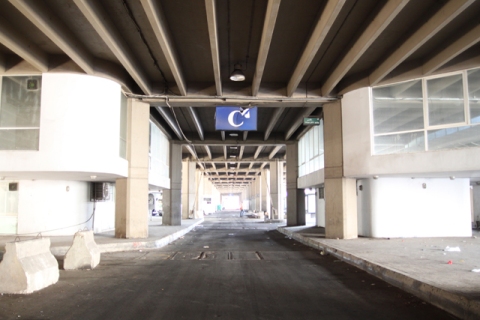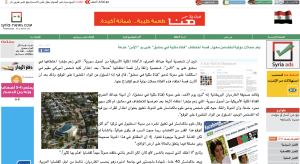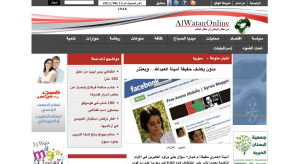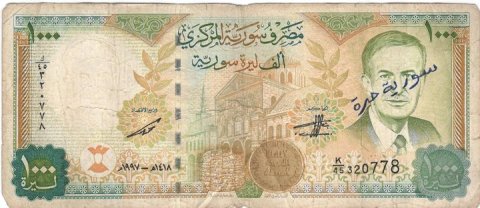Syria’s Subversive Soaps
August 9, 2011 § Leave a comment
My article in the Atlantic on Syrian soap operas.
Anthony Shadid goes to Hama
July 20, 2011 § Leave a comment
In President’s Square, the government dismantled a statue of Hafez al-Assad on June 10. The next day, residents recalled, a man nicknamed Gilamo put his donkey on the pedestal. Hundreds gathered, clapping, in mock displays of obsequiousness.
“Oh, youth of Damascus, we in Hama overthrew the regime,” residents recalled them chanting. “We removed Hafez, and we put a donkey in his place.”
Arabic News Links of Varied Importance
July 18, 2011 § Leave a comment
- Man electrocuted in Aleppo car wash.
- Some Syrian actors don’t like Bashar al-Asad and aren’t afraid to say it.
- Syrian Opposition argues over formation of shadow government at Istanbul conference. Kurds withdraw because of marginalization of their concerns. Haithem Maleh talks sense into people: “Internal opposition is fundamental, while the opposition abroad works to provide support and assistance.”
- Lebanon is kinda like the Bermuda Triangle. At least for Estonian tourists.
- 13 people poisoned in Jeddah restaurant.
- Syrian married couple seeks advice after recent demonstrations have brought out irreconcilable political differences.
- Elderly Saudi man’s love of foreign novels leads him to internet exploration.
Photo from Flickr.
Hotel Rooms
June 26, 2011 § Leave a comment
Here are some photos that I gathered from Flickr of travelers’ hotel rooms in the Middle East. My personal favorites are from Bahrain and Saudi.
SYRIA
YEMEN
KUWAIT
EGYPT
ALGERIA
JORDAN
SUDAN
OMAN
BAHRAIN
SAUDI ARABIA
MOROCCO
Photo Sources (in order): Syria: Slurff, Marginilo, RovingGastronome; Morocco: jeanclaudeparisio, Holly Hayes, DorteF; Yemen: s1ingshot, ben.ragsdale; Kuwait: LeMeridienHotels, jeremyhaynes1974; Saudi Arabia: Jackson Lee, iamnatatonia, lost_in_sky; Bahrain: ulanowski, Ramadan; Egypt: kenmoo, jcravens, grapejuiceGTA, ignasi.capdevilla, jfkavinoky, minchelle, shinycity; Algeria: Amberinsea, Justin E. Tilton; Oman: stepnout; Sudan: fiorucci; Jordan: Isalum, suedebicycle
The trash and the dirt and the misery
June 22, 2011 § Leave a comment
Trash, dirt, and misery is how one of the proprietors of the Charles Helou transportation hub in Beirut describes it now. The site of Charles Helou became an informal transportation hub during the civil war, but in 1994, it became official, with goals of consolidating several taxi and bus companies. Since the 1990s, its original sheen has faded.
All this and more is discussed in Nora Niasari’s short documentary “Under the Bridge.”
Beirut has a damaged transportation infrastructure to say the least and the documentary touches on a few aspects of it. From the hundreds of broke-down Czech buses now in bus graveyards to the chaotic bus stations underneath bridges, we observe how Beirut transportation also bears the marks of conflict and economic struggle.
The documentary provides the images, along with Lebanese narrations, that coincide with a more complex history. The history is fleshed out in the text accompanying the documentary, with a focus on the Dawrah, Charles Helou, and Cola stations.
Abandoned buses and tramways can be seen as tombs from a distance in ‘Bus Cemeteries’ located at the central stations of ‘Mar Mikhael’ and ‘Sahet Al Abed,’ with one or two caretakers watching over 500 buses on a daily basis. Cola and Dora still remain as central transport hubs, however, their socio-political fabric has changed significantly. In Cola, political forces including Hezbollah, The Amal Movement, and the Lebanese Army govern an overlapping area of Shiite and Sunni Muslims in South-West Beirut, where rising tensions and clashes are ever-present under the bridge. Independent bus and taxi drivers are suffering due to the extreme monopolization of bus depots by private companies, creating chaos and a feeling of constant fear in their daily activities.
Syrian Media and A Gay Girl in Damascus
June 13, 2011 § Leave a comment
As many predicted, the Gay Girl in Damascus hoax fits perfectly with the Syrian regime’s narrative of foreign-led instigation of protests in Syria. The hoax has been covered in several Arabic-language news outlets, but the coverage is not yet as widespread or significant as it appears to be in English-language outlets. In coming days, I’m sure there will be more extensive coverage from outlets like al-Akhbar, but until now, here is how some Syrian outlets are talking about Tom MacMaster.
SANA includes a link to the story on their homepage with reports in English and Arabic. The Arabic version reports that “American participates in campaign of deception by fabricating a Syrian woman’s blog [who claims] to be kidnapped in Syria.” That pretty much sums it up. SANA cites The Guardian as its main source of information, but does not mention sexual orientation until the second to last paragraph. The main thrust of the article is the fact that an American promoted “lies and allegations against Syria,” which turned out to be entirely false.
The Syrian online news site Syria News reports the incident as a hoax and clearly mentions that MacMaster impersonated an Arab-American lesbian. Again, the sexuality aspect takes a back seat to the whole “lies and deception” aspect. The article also highlights the Western media’s role in passing off fiction as fact, citing the Reuters photo incident as further proof.
Al-Watan Online, a Syrian site connected with the print version of al-Watan (owned by Rami Makhlouf), gives the standard interpretation of the hoax as read above. Al-Watan states that the gay identity of the blogger was what “helped attract interest of the media and people in the West.”
My guess is that we haven’t seen the last of MacMaster in the Arab press.
Running the Party Line in Syria
May 19, 2011 § Leave a comment
My article on the Australian news site New Matilda is up! I look at protest coverage in Rami Makhlouf’s newspaper al-Watan.
Before March 2011, the name Rami Makhlouf received scant mention in the English-language press. Then, as Syrians began taking to the streets in large numbers in the southern city of Deraa, media around the world reported that many demonstrators had chanted that someone named Rami Makhlouf was robbing them. As al Jazeerareports, “demonstrators have shouted the name of Makhlouf as a symbol of graft in a country that has been facing severe water shortages and unemployment ranging from government estimates of 10 per cent to independent estimates of 25 per cent.”
Commentators taking a crash course in Syrian politics started to ask the question: “Who is Rami Makhlouf?”
Makhlouf doesn’t really represent Syrian government views, except when he does
May 12, 2011 § Leave a comment

Syrian Ambassador to the US Imad Moustapha sent a letter to the NY Times on May 11 stating that Syrian businessman and first cousin of Bashar al-Asad Rami Makhlouf “holds no official position in the Syrian government and does not speak on behalf of the Syrian authorities.” This was in reaction to the NY Times‘s interview with Makhlouf, which portrays him (correctly) as an influential businessman with connections to Syria’s top rulers.
My guess is that Moustapha didn’t have a problem with Makhlouf’s comments about fighting demonstrators until “the end.” It is more likely that Moustapha was doing damage control for this quote:
If there is no stability here [Syria], there’s no way there will be stability in Israel.
After the Makhlouf article was published, nearly every Arabic-language news outlet focused on this line, including al-Jazeera Arabic. Al-Quds al-Arabi, the London-based daily, dedicated its editorial to analyzing Makhlouf’s statement about Israel. The editorial states that Syria’s support for the Resistance, which has always been questioned by some, is now going to be put under more scrutiny. Presciently, the editorial predicts that Makhlouf’s comment will lead to “unintended consequences” even if it was just a slip of the tongue.
On that note, before two months ago, it was nearly impossible to find a photo of Rami Makhlouf online, much less a detailed article about him in the English-language media. Now that he’s getting front-page NY Times coverage, it’s hard to miss his face.
Top Image of Rami Makhlouf from Aleppous Project.
A Sadder Story of Syrian Celebrity
May 11, 2011 § Leave a comment

In a scenario only fit for a Syrian drama, Syrian drama stars are trading insults regarding who did or didn’t sign petitions expressing solidarity with Deraa (the town besieged by the Syrian Army).
There are a few petitions in question. The first, signed by actors Jamal Sulaiman and Basim Yakhour, called for an investigation into the events of Deraa and for mourning over martyrs. Actor Zuhair Abdul Karim went on Syrian TV and called for these traitors to have their Syrian citizenship removed.
Then, actors circulated another petition that called for humanitarian aid for the children of Deraa. The cycle of denunciations for being traitors began. Shortly after the release of this petition, a few of the Syrian actors — including Mona Wasif — who had supposedly signed the petition claimed they never signed anything. These actors then formed another petition recanting the previous petition, saying they had been influenced by instigators in the media. As if that weren’t enough petitions, Syrian producers drafted a petition stating that anyone who signed a petition about Deraa is a traitor to Syria.
The al-Akhbar article on the debacle ends on a somber note. They only position that is safe for Syrian artists, the author said, is that of silence.
In any situation, it seems the one solution for the Syrian actor these days is silence and to remain a spectator in these events, since any action will be met with a denunciation (literally: making a traitor of) campaign.
Al-Akhbar ends the piece with a bizarre account of a delegation of actors from the Syrian Artists Union visiting wounded soldiers in the Tishreen Military Hospital. Al-Akhbar reports that doctors started yelling at the actors, telling them to leave immediately. The doctors said that they were visiting the hospital only for the good of themselves.
Top Photo of Jamal Sulaiman from al-Sharq al-Awsat.
A Sad Story of Syrian Celebrity
May 11, 2011 § Leave a comment

The Syrian actor and comedian Durayd Laham (also referred to by the name of his famous character Ghawar) is one of the best-known and well-liked Syrian performers in the region. That is, until a video surfaced at the beginning of March showing Laham and Qaddhafi, along with other Syrian actors and musicians, getting cozy at a party at Laham’s home in Damascus after the 2008 Arab Summit. The video was released well before demonstrations hit Damascus, but during the height of international media coverage of Qaddhafi’s brutality in Libya.
Laham has since told the Lebanese newspaper al-Akhbar:
It’s not possible for anyone with a shred of humanity to accept what is happening in Libya.
Then, al-Akhbar paraphrases him as saying that he “condemns the oppression of demonstrators who have come out to express their opinions.”
Two months after his al-Akhbar interview, and two months into the largest popular demonstrations Syria has seen in decades, Ghawar doesn’t think it best to afford the Syrian people the type of freedom of expression he advocated for Libyans. In an interview with al-Arabiya, Laham said that the Syrian Army is preserving “civil peace.” During the interview, al-Arabiya states that Laham mostly slurred the protestors in Syrian dialect, so they couldn’t reprint his words exactly.
Laham did have sharp words for Palestinian-Israeli commentator Azmi Bishara, who has been critical of the Syrian regime:
Syria considered him a friend, and on this basis, we dealt with him. But he was wearing the devil’s cloak.
Bye, Ghawar. I’ll miss you.
(The above is a clip from the Syrian movie Salt and Sugar, a musical comedy set inside a prison. Thanks to Adam for the al-Arabiya tip!)
Syrian Army Makes Everything Better; Discovers “Central Operations” Room of Militants
May 10, 2011 § Leave a comment

Fact: The Syrian Army has moved troops into Baniyas and Homs. But everything else in al-Watan’s lead story this morning is up to interpretation, including:
- The Army entered the cities with “preciseness” and did not injure or kill anyone.
- The Army received “much support” from the people on Baniyas in revealing identities of “militants.”
- Over 1,083 people have turned themselves in since they felt so guilty about their militant actions.
- And this gem (which is intended to be a compliment to the Army): “When the Army enters a city or neighborhood, they arrest every person in front of them even if he’s not fighting. Then, after confirming his identity and personal information, they decide to keep him or let him free.”
In keeping with the angle of foreign meddling in Syrian domestic affairs, al-Watan reports that a “central operations room” of the “militants” was discovered. Inside the room was a whole trove of militant gear!
- Cellphones from the Tharaya company (an Emirati company)
- “Cameras with satellite capabilities.” If you look closely at the photo above, it’s pretty obvious that these are non-digital cameras and perhaps the oldest looking video camera you’ve ever seen.
Once the Syrian government found out that these crafty militants were using phones and “satellite” cameras, there was only one real solution: shut down the internet and wireless networks.
If you watch one video of Syrian protests, let it be this one
May 6, 2011 § Leave a comment
Protestors on May 6, 2011, the “Friday of Defiance,” in Jarjanaz, Syria chanting “We will remove you Bashar.”
Give Asad the benefit of the doubt?
March 29, 2011 § Leave a comment
Just a few months ago, I criticized the New York Times’ assessment that the “new generation” of Syrian youth was only capable of producing “a culture of small-bore opportunism.” I still disagree with reporter Michael Kimmelman’s elitist and narrow-sighted dismissal of Syrian art, culture, and society, but I can’t bring myself to disagree with what Kimmelman said next:
A young generation of Syrian entrepreneurs, weaned on the Internet and devoted to the global marketplace, has arisen in the last decade or so. They see fresh chances to make big bucks and show little appetite for political confrontation. During the 1960s, and then under Hafez al-Assad in the ’70s, Syria had its version of the youth movement. It survived partly because Syrian activist-artists steeped in Sartre shared with the country’s rulers a dream of pan-Arab prosperity. But today young Syrians, many of them freely admit, dream not about making waves but making money.
During the past weeks of protest in Syria, many of the elite and wealthy “youth” of Syria have spoken out on Twitter and in op-eds, letting it be known that while they condemn violence, they strongly support Bashar al-Asad. Their arguments and reasoning are not one-sided or simplistic; many elite supported demonstrators in Deraa and condemned the killings of demonstrators by security forces, yet ultimately, the prevailing sentiment is that the stability of the known must reign over the chaos of the unknown. This is not to say that all elite Syrian youth share these sentiments or that it’s only the non-elite who support revolution, but at least to say that there is a segment of the youth elite firm in their support of the regime. (Insert here something about how these people, despite their support for the regime, really support human rights, release of political prisoners, lifting the state of emergency and so on and so on and so on.)
Syrians like Abdulsalam Haykal and Sami Moubayed, who I guess are on the younger side of the spectrum, are in line with Kimmelman’s description. Both are involved with the development of the private media in Syria, with Haykal being CEO of Haykal Media and Moubayed writing and editing the Haykal-owned magazine Forward. It was Haykal who announced last month via Twitter that Syria had lifted its ban on Facebook. I have singled out these two since not only are they very successful financially, they are also media savvy and serve the regime just by being young Syrians who support Bashar.
With Bashar’s wife Asma al-Asad spearheading the “development” of Syrian civil society through a network of government-sanctioned (N)GOs, such as the Syrian Trust for Development, characters like Haykal and Moubayed embody the ideal type of leader emerging from this tightly-controlled civil society.
Now, moving on to Moubayed’s recent op-ed for Gulf News titled “Al Assad Deserves Benefit of the Doubt.” The title pretty much says it all, but his arguments present succinctly some of the Syrian youth views on past weeks’ demonstrations. You see, there are really only “two paths” for Syria:
One is that of Al Assad, which calls for calm, and offers far-reaching reforms that would completely face-lift and revamp the entire composition of the Syrian regime . . . This path promises democracy via the British model, through evolution not revolution.
[ . . .]
The second path is that of chaos and a very uncertain future at the end of the tunnel. It calls for bringing down the regime, shattering Syria’s tranquillity, and thrusting the nation into a very murky future.
Is it possible that Moubayed speaks for a large segment of the Syrian population when he lays out these two futures? Yes. It’s also possible that the stability of a dictatorship will continue to bring success, a stable economic future, and steady foreign investment for the elite, continuing the trend of the past several decades of circulating power and wealth amongst a small cadre of individuals. When I talk to other Syrian youth, those whose family members have served time in jail for political views, I see optimism in a different future, one that does not involve “trusting” your leader or giving him the “benefit of the doubt,” since this option has certainly benefited only a select few.
Making friends in Syria
March 28, 2011 § Leave a comment
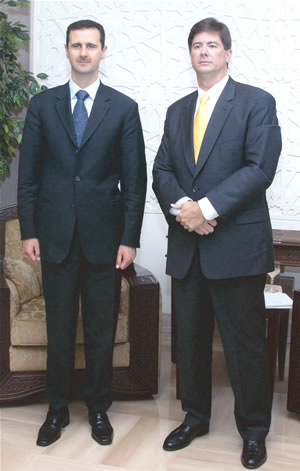
Trinity University Professor David Lesch with Syrian President Bashar al-Asad. Source: Trinity University
For academics, establishing access in Syria for research is difficult. Maintaining that access over years is even more difficult. While I understand this basic concept, and have experienced the so-called “red lines” in Syria while attempting research, it seems to be a given that academics shouldn’t sacrifice the honesty of their work in order to maintain this access.
With the past two weeks of demonstrations and violent responses by security forces in Syria, those academics who have maintained their access to Syria – undoubtedly with some bumps along the way – have weighed in with their analyses. Joshua Landis of the University of Oklahoma and David Lesch of Trinity University are the two that come to mind and are the most likely to be branded as apologists for the Syrian regime. It’s hard to find much evidence that contradicts that judgment.
Though I often think that Landis is doing his best to ward off hawkish responses to the Syrian regime, i.e. sanctions and invasion, it’s also apparent that he is quick to support the Syrian regime’s assertion of ongoing “reform,” even when the reality of the situation is repression, political prisoners, and widespread deception in the Syrian press. There is no denial that many Syrians support Bashar al-Asad, but should this preclude harsh criticisms of past and current regime actions? Landis and Lesch have both paid their obligatory lip service to human rights, stating that Syria must seriously work to improve its human rights record, but often, this statement is just an afterthought tacked to the end of some tome about how Bashar is really on the verge of reforming.
Case in point: Lesch’s recent analysis of protests in Syria published on Landis’s blog. In listing the several reasons why Bashar al-Asad’s regime is “safe and secure,” he points to Asad’s humble lifestyle.
He lives and acts humbly, i.e. you will not find any Wikileaks reports detailing the extravagant lifestyle of Bashar al-Asad. He is a good family man with a beautiful, cosmopolitan, and civically active wife.
Lesch seems blind to the reasons why many Syrians are opposed to the regime, if not the actions perpetrated by the numerous arms of the regime, such as the security forces. For Lesch, the fact that Syria is a police state might be OK since Bashar has “good intentions.” If you’ve ever read Lesch’s biography of Bashar, The New Lion of Damascus, then this analysis will come as no surprise.
In a 2009 interview, Lesch said:
I enjoy my access, and I think there are certain red lines, he says. I think I have learned these red lines.
More importantly:
He [Bashar] loves Electric Light Orchestra, Lesch says. That’s his favorite Western band . . . and I like them, too.
Even better:
I basically said ‘Mr. President, you know I am not an apologist for Syria. I’m going to tell it like it is.’ And he said ‘I know that because I have read some of your writings and you are very critical of Syria, especially under my father.
What better way to know you’re not an apologist by sitting down with the Syrian president for tea and have him tell you you’re not an apologist?
In short, if you’re starting to toy around with the idea that Bashar al-Asad is a true reformer in the midst of those “other” Middle East dictators, it might be time for you to abandon your access to Syria and re-examine the basic principles that fuel your work. Lesch and Landis use their academic status to elevate themselves above your typical political commentators, but unfortunately, in the process of cultivating sources in Syria and wishing to remain on friendly terms with the regime, they have given up much of their credibility as astute observers of Syria. I don’t believe that those academics working in Syria should be compelled to become vocal critics of Asad’s regime at every turn, but those that chose to get involved politically, like Landis and Lesch, would be better suited in turning a critical eye on those in power.
New Syrian lira?
March 28, 2011 § Leave a comment
The Syrian one thousand lira note, about $20, featuring Hafez al-Asad and “Free Syria” penned in over his face. Posted on the Syrian Revolution Facebook site.

